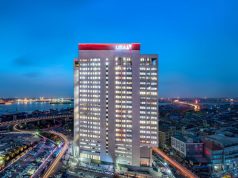BRUSSELS, FEBRUARY 12, 2018 – Volatile markets and an acquisition in Brazil prompted the world’s second largest brewer Heineken to warn its profitability in 2018 would improve by less than the target it had set for the previous three years.
The Dutch brewer, whose Heineken lager is the top seller in Europe, had a target of increasing its operating margin by 40 basis points per year between 2014 and 2017 but said it expected this margin to increase by 25 basis points in 2018.
In 2017, Heineken’s margins had in fact expanded by only 14 basis points, weighed on by the acquisition of the loss-making Brazilian business of Japanese rival Kirin.
“We expect the environment will continue to be marked by volatility and uncertainty,” Chief Executive Jean-Francois van Boxmeer said in a statement.
Shares fell as much as 5 percent in early trading, as analysts cited disappointment over the company’s outlook. Markets also punished Danish brewer Carlsberg last week after the number three brewer reported profits well below expectations after struggling in Russia.
However, Heineken said it was encouraged by the performance of its new Brazilian unit, the purchase of which made it the second largest brewer in the country behind Anheuser-Busch InBev.
Heineken has gained in recent years from strong performances in its two largest markets — Mexico and Vietnam.
But it has faced struggles in Africa, notably Nigeria, where weak economic growth and low consumer sentiment have depressed beer consumption.
The brewer of Tiger and Sol lagers and Strongbow cider said beer volumes increased in all of its business regions in 2017, though growth in Europe was almost flat.
The European performance was impacted by Polish discounters selling smaller volumes and cool summer weather in the second half.
Heineken is not the only drinks company to suffer from price pressures on alcoholic drinks in Poland.
Last week French spirits producer Marie Brizard Wine & Spirits reported a significant loss due to problems at its subsidiaries in the country.
INFLATIONARY PRESSURES
Heineken said it saw inflationary pressures from raw materials such as aluminium used in beer cans and because of volatile emerging market currencies.
It added it was also keeping a close eye on price developments in Britain, in the wake of the country’s decision to leave the European Union.
“You saw cost inflation in the UK last year and that will have to be very carefully looked at in the context of the Brexit,” Chief Financial Officer Laurence Debroux said on a conference call.
For the group as a whole, operating profit before one-offs in 2017 came in at 3.76 billion euros ($4.62 billion), a gain of 6.2 percent, and in line with the average forecast in a Reuters poll of 3.75 billion euros.
Heineken said it would pay a dividend of 1.47 euros per share for its 2017 financial year, a 9.7 percent increase from the previous payout to shareholders.
Heineken trades on a forward enterprise value to core profit (EV/EBITDA) multiple of about 12 times.
That is above Carlsberg, but below that of global leader AB InBev, which has made acquisitions and cut costs but seen sales fall in the United States and Brazil.









